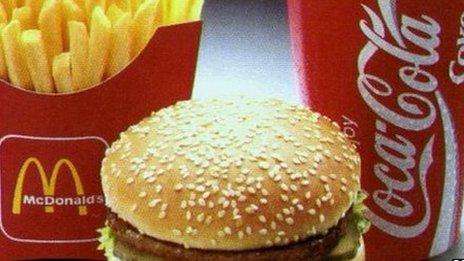US fast food worker protests expand to 190 cities
- Published
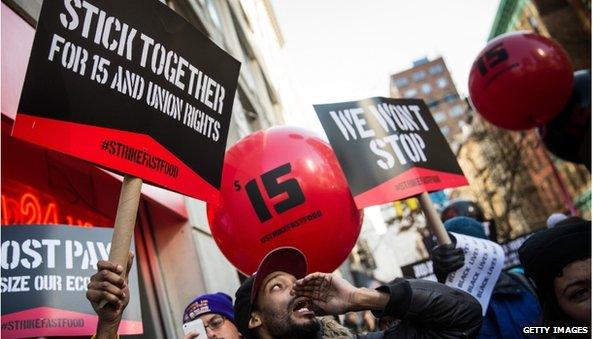
Fast food workers and others - including airport employees and carers - are asking for higher wages
US fast food worker protests expanded to 190 cities on Thursday as the movement to raise the minimum wage in the US to $15 (£9.57) an hour reached a two-year anniversary.
In cities from Boston to Chicago, fast food workers and union organisers marched outside of various McDonalds.
The movement has seen some success, with cities such as San Francisco and Seattle raising the minimum wage.
US President Barack Obama has said he supports their efforts.
Two-year anniversary
The so-called "Fight for 15" movement has organised eight protests and walk-outs in the past two years, but billed Thursday's efforts as their biggest yet.
Fast food workers, airport employees and home-health aids, amongst others, have argued that the current federal minimum wage of $7.25 is not enough to allow workers to live.
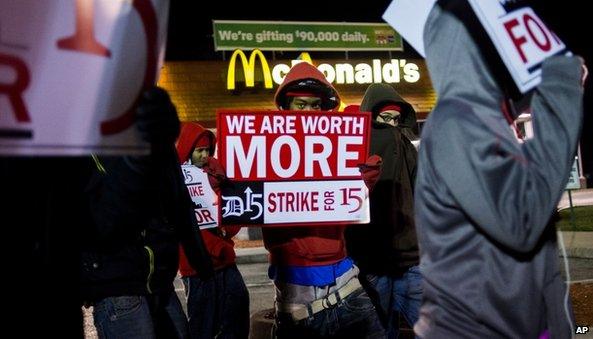
Workers and union supporters in Michigan protested in the early morning outside a McDonalds
The campaign is backed by the Service Employees International Union, which has provided financial support and organisational help to the effort.
They have exerted pressure on McDonalds, Burger King and other fast food restaurants to raise wages, in addition to working with local politicians to get wage-raising measures on the ballot during election season.
McDonalds has said that the protestors do not necessarily represent the opinions of all of its employees, and that wage decisions are up to individual franchise owners.
"It's important to know approximately 90% of our US restaurants are independently owned and operated by franchisees who set wages according to job level and local and federal laws," it said in a statement, external.
'A real struggle'
In New York City, hundreds of workers gathered at a McDonalds in downtown Manhattan, chanting slogans and walking in step with a marching band.
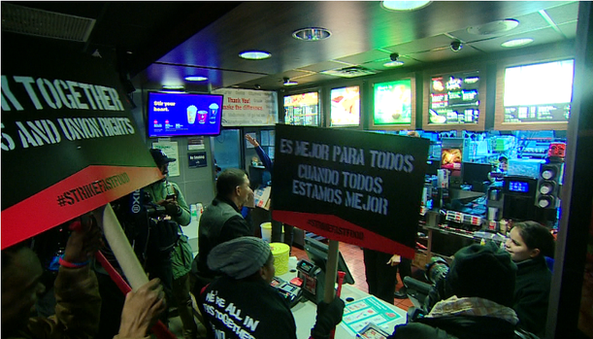
Workers briefly entered a McDonalds in lower Manhattan before marching out
They briefly went into a franchise, before leading a march toward's New York's City Hall.
"I'm going to cry - we went from 200 workers in New York City to workers in countries around the world," said one organiser who addressed the crowd.
"We've accomplished a lot in the last two years."
Shantel Walker has been with the movement from the beginning and has attended six protests.
She has been working at a Papa John's pizzeria franchise on and off since 1999, yet she says she still only earns $8.50 per hour - not substantially more than when she first started.
"Right now it's a real struggle to survive," she says.
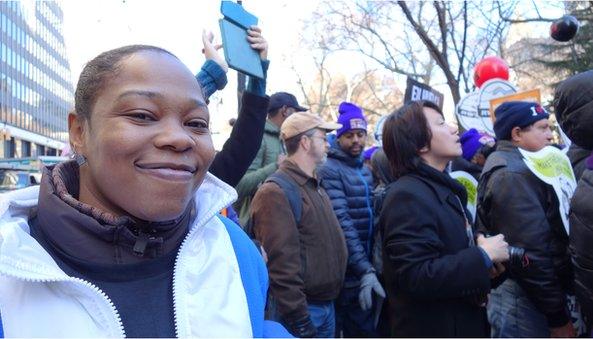
Shantel Walker has worked for Papa John's since 1999
"If I get paid on Saturday, by Monday I'm broke."
Smart choice
Labour analysts say that the movement has managed to gain momentum both because it capitalised on the increasing focus on income inequality in the wake of the 2010 Occupy movement, and because it made canny organisational choices from the start.
"The fast food fight did one thing that was smart instead of just demonizing McDonalds, they've really pushed for metropolitan wide increases in the minimum wage for everyone," says Nelson Lichtenstein, the director of the Center for the Study of Work, Labor and Democracy at the University of California - Santa Barbara.
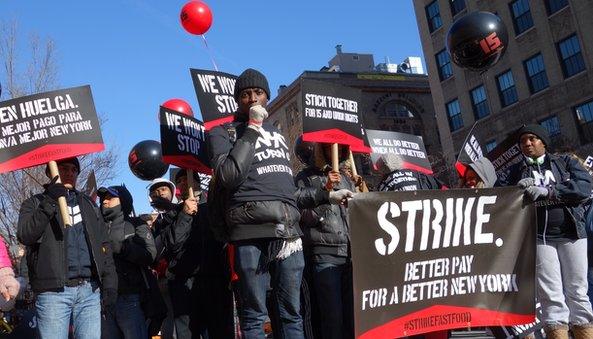
Fast food workers began organising strikes and protests two years ago in New York City
That has meant that the movement has been able to gain many different types of workers.
Furthermore, instead of just exerting pressure on specific corporations like McDonalds and Burger King, for example, organisers have been able to focus attention on wages for everyone and thus get certain ballot measures passed.
And for workers like Ms Walker, those small successes - in cities like San Francisco and SeaTac, Washington - are reason enough to keep marching.
Corporations "get richer and we get poorer and that's the bottom line" she says.
- Published28 November 2014
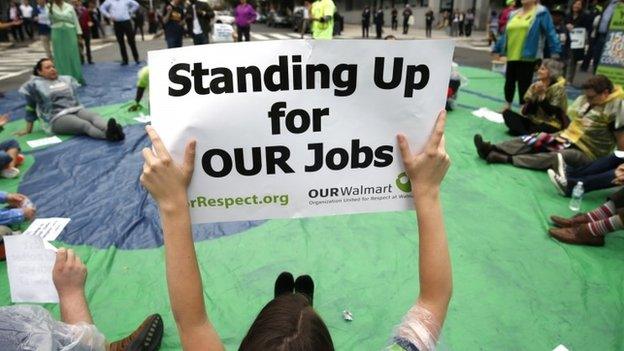
- Published21 May 2014
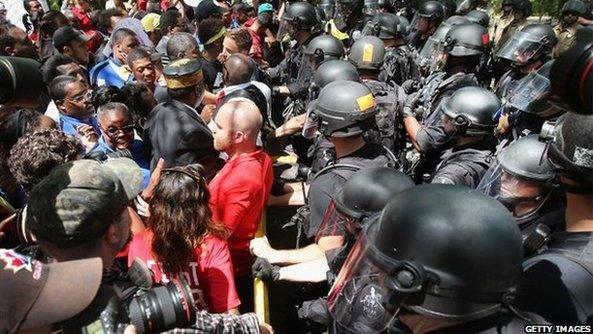
- Published21 October 2014
